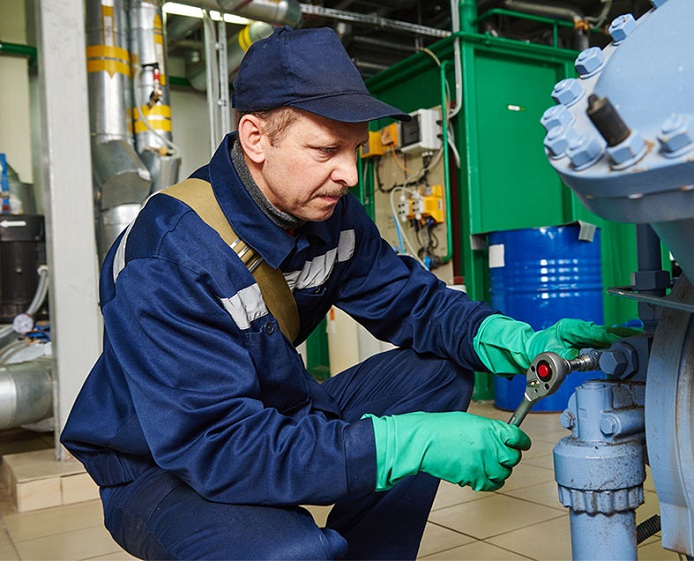Dry air is required for the production of high-quality, usable air by systems that utilize compressed air. When using compressed air, the air will include no liquid moisture, as well as its relative humidity should be lower than 50 percent. Other conditions that should be met include: This helps to avoid corrosion throughout the system, which in turn increases the lifespan of your equipment.
Agenda for Preventative Service Checkups
You could make arrangements with a service provider including such Air Energy to have routine maintenance performed on your system at a predetermined time. Because the primary maintenance procedures would be handled for you at predetermined intervals by an automated system, you won’t need to be concerned about them. Throughout these appointments, qualified technicians would examine all of the system’s components, including pipes, fittings, or other elements; they will also do fundamental oil quality tests and evaluate the system’s general health. They would provide you with guidance on just about any potential industrial air compressor repair service facilities that you may require in the future.
Make sure the air filter is updated
During the course of a day’s worth of use, the filter that is housed within your air compressor will collect a great deal of debris. As a result, the performance of the system is hindered, and the system must use a greater amount of effort simply to carry out its fundamental duties. If the situation continues, unclean air filters might result in excessive amounts of energy use, expensive maintenance, and downtime. Because of this, it is essential to replace the air filter on a yearly basis.
You should clean the intake valves
By manually opening and closing the air intake, the air compressor intake valve enables you to control the capacity of such rotary screw compressor in your system. Whenever the target pressure is achieved, the compressor would switch to the “unload” mode, at which point the unloader valve would close almost entirely to prevent any additional air from entering the compressor. Because of this, it was unable to draw in any more air and squeeze it.
In order for an air compressor to operate at its maximum capability, the intake vents need to be kept clean. Dust particles as well as other airborne components will invariably be sucked into in the vents of the compressor after several weeks of continuous use of the machine. For this reason, it is essential to clean the vents on a regular basis.
Remove any Condensation from the Tank
A receiver tank is a component of air compressors that is responsible for collecting any moisture in the air that may have accumulated as a result of the operation of the compressor. The majority of storage containers feature at least one or two drain valves that can be used to remove excess moisture; as part of your routine maintenance, you should empty these valves every day.
Inspect the hoses
Any harm to the hoses of an air compressor, which serve as crucial connection points for the system, can be extremely detrimental to the functioning of the entire system. It is essential to inspect your hoses on a regular basis, at least once every week, in order to forestall the development of problems like as leaks and cracks. As a result of stormy or chilly weather, hoses can sustain damage, such as cracking or corrosion, which can be costly to repair. Leaks are a common consequence of such damage, which can add up to a significant financial burden due to the diminished performance of the equipment and the high cost of necessary repairs. When routine checks are performed, this will help make sure that the hoses are kept clean and in good condition. And because leaks are frequently difficult to spot, a leak-detection system can be of tremendous assistance in locating leaks at an early stage — before significant damage is caused.
It is of the utmost importance to adhere to the procedures outlined earlier on how to make your air compressor extra productive. This is because of the potential losses that an air compressor system can have on your organisation and its bottom line. Performing routine maintenance, streamlining the design of your system, and creating company standards for the correct use of air compressor system controls are a few examples of such kinds of things that fall under this category. All of these things can help you cut costs associated with air compression and boost the efficiency of your air compressors.
The significance of doing the necessary routine maintenance on an air compressor is illustrated by the reasons that have been discussed above. Taking this a step further, either directly within your organisation or by hiring a third party, develop a routine maintenance organized into four. This can be done either internally or externally.
Maintenance as well as cost reduction are extremely important in the contemporary fast-paced workplace environment. A facility must not give a low priority to developing a preventative maintenance programme that is comprehensive in scope, content, and level of detail. These plans are essential to the operation as a whole and should be incorporated into any lean manufacturing techniques that may be used. In certain circumstances, routine maintenance programmes also assist in achieving the objectives of the environmental and safety teams.

